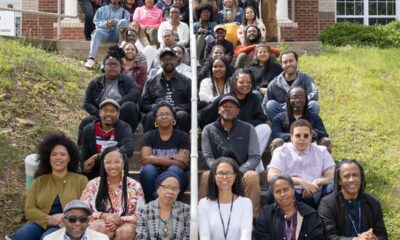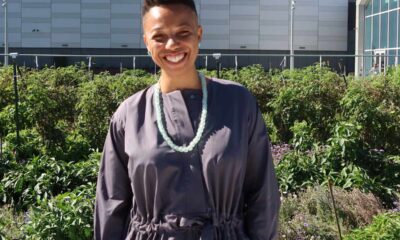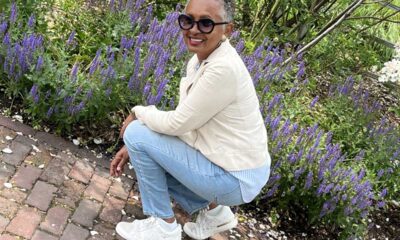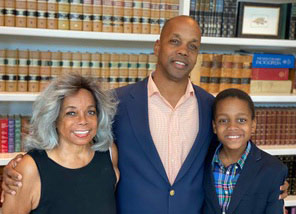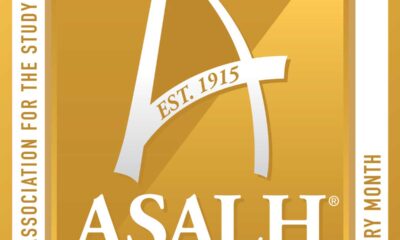Education
Black Studies Pilot Brings African Diaspora History to NYC Classrooms

By Fern Gillespie
June was the month for celebrating the historical significance of Juneteenth in Black American history. It was also the month that the Black history curriculum in New York City public schools was introduced to the public through a colorful touring Black history bookmobile museum.
The Black History bookmobile was created by the Education Equity Action Plan Coalition (EEAP), the coalition that developed the Black Studies curriculum for the NYC Department of Education. During June, the bookmobile visited Harlem, Bronx, Queens, and Brooklyn bringing a fascinating history exhibit and 5,000 books by Black authors to communities.
“It was like a touring museum. There was an installation with photos, books, video, and artifacts. It was a tour guide on what would be expected from the Black Studies curriculum,” said Adrian Straker, a retired award-winning school guidance in Brooklyn told Our Time Press. She is President of the Association of Black Educators of New York, Inc. and a EEAP ambassador. “It was an interactive and engaging activity for adults and children. And, everyone received a bag of books!”
Straker and Dr. Shango Blake, President of Black EdFluencers United, have conducted presentations explaining the Black Studies curriculum at nail salons, beauty parlors, barbershops, laundromats, PTA meetings, and community programs.
In Spring 2023, the pilot for the NYC Black Studies curriculum was launched in public schools in District 5 in Harlem and District 29 in Queens. It was in grades K-12 in every single school in those districts. The official title for the course is
Black Studies as the Study of the World pre-K to 12: Black Studies Curriculum Guide. The Black Studies course is scheduled to go citywide in 2023-2024.
After decades, the decision to approve a Black Studies course in NYC public schools started to fast-track during the pandemic. “There was a call to action. We became more unified and more focused on things that needed to happen. A white paper was written. And submitted to City Council,” Michelle Patterson, a member of Black Edfluencers, EEAP and NYC Department of Education advisor on disproportionality, told Our Time Press. Her brother George Patterson, principal at Brooklyn’s Meyer Levin Middle School and board member of Black Edfluencers United, wrote a white paper in 2019 on behalf of BE-U with current Schools Chancellor David Banks, who was then heading The Eagle Academy Foundation.
“The white paper was submitted to the City Council,” Patterson recalled. “The response was “Do you mean New York City does not have a Black Studies curriculum?” And the answer was no. Then we began to form the coalition.”
By 2021, the New York City Council Black, Latino, and Asian Caucus provided $10 million in funds to launch an Education Equity Action Plan (EEAP) to develop an interdisciplinary Pre-K-12 Black Studies curriculum that acknowledges the history and contributions of Black people, from ancient Black societies in Africa through the present. EEAP Coalition members: United Way of New York City, Columbia University’s Black Education Research Collective, Eagle Academy Foundation, Association of Black Educators of New York, Black Edfluencers United and NYC City Council’s Black, Latino, and Asian Caucus are the core partners charged with developing and launching the curriculum in collaboration with the NYC Department of Education.
“This Black Studies issue has been tackled a number of times by a number of entities. It’s a conversation that has been going on for decades,” said Straker. “The Adelaide Sanford Institute and various other African American think tanks have tried over various decades to push about what should we do about Black studies and about African-American contributions to this country. How do we tell our stories?”
Special two-day professional learning teacher’s workshops on instructing Black Studies for K-12 graders were held at Columbia University for Harlem teachers and York College for Queens teachers. It focused on mindset readiness, how bias can impact, how to have difficult conversations, how to discuss hard truths, honoring children’s culture and creativity and teaching children to analyze.
“To think about how information and culture is transmitted globally and how it impacts the mindset readiness was hugely important,” said Patterson. “Because we did not want people engaging in activities that were not going to serve children and not going to serve communities and thinking they were doing the right thing.”
EEAP partner, The United Way of New York City, believes that the largest school system in the nation needs to reflect the voices, experiences, and legacies of Black and Brown people for the benefit of all students. “When we exclude the contributions of Black Americans and the Black diaspora in this country and around the world, we are preventing our youth from receiving the best education possible,” Nina Simone Stovel, Associate Vice President of Educational Equity at UWNYC told Our Time Press. “As we see States going backward and trying to erase our voice and existence in history, NYC must lead the country and weave Black History and Black Studies into the everyday curriculum for all students PreK-12.”


